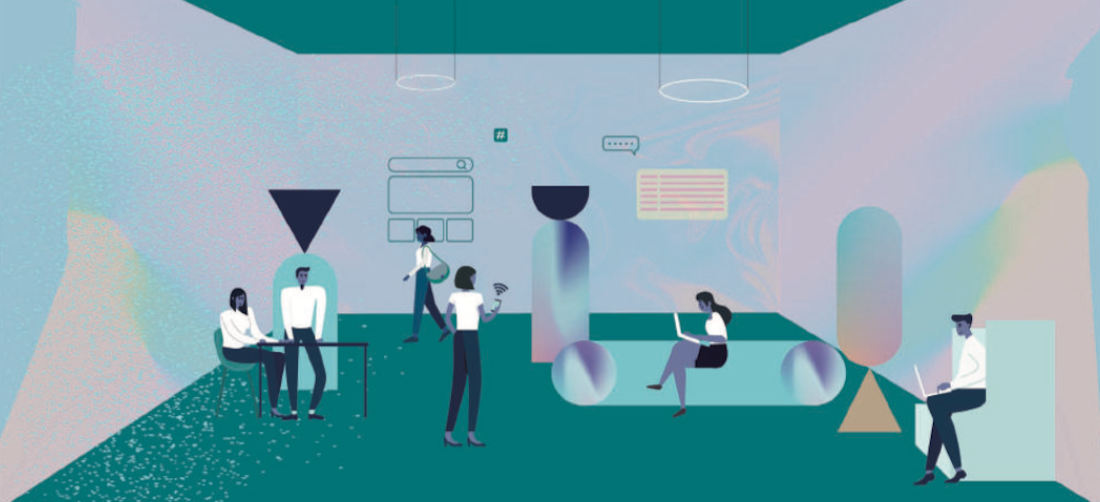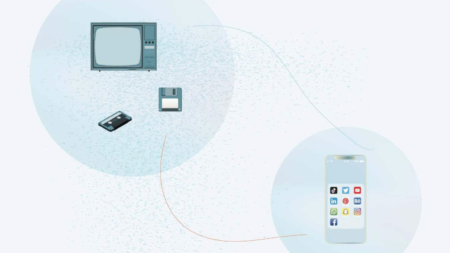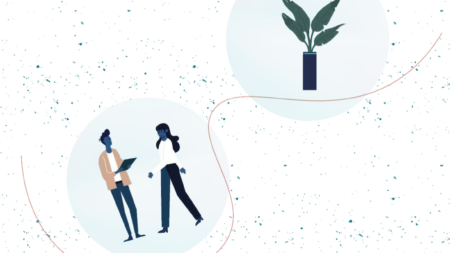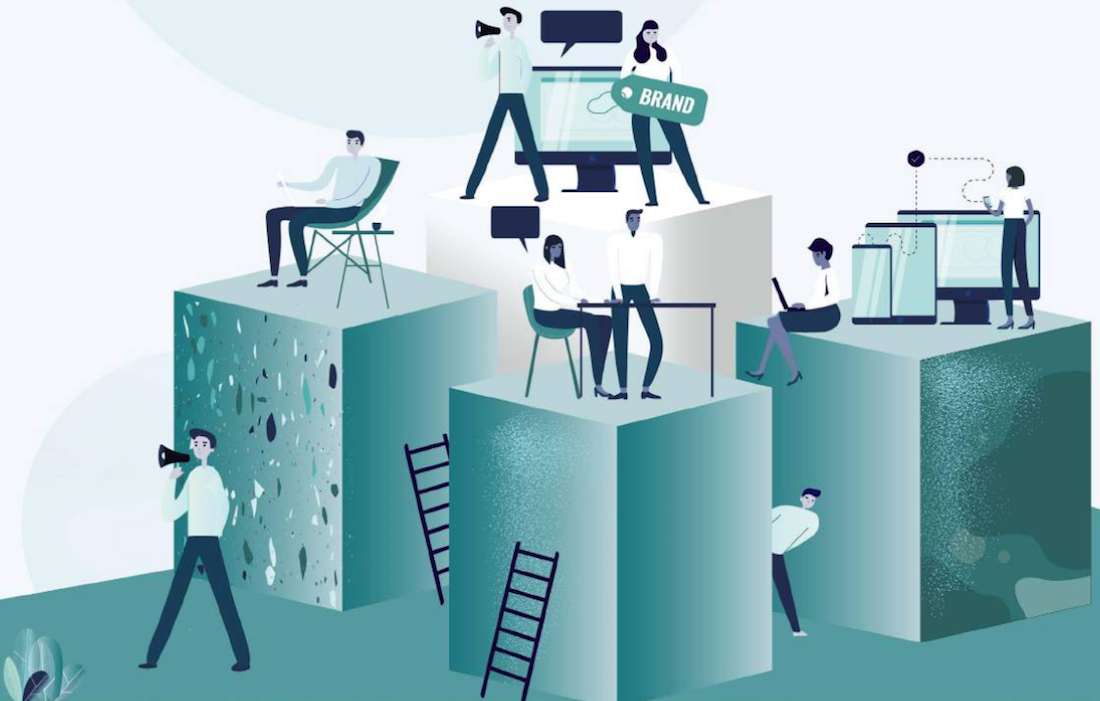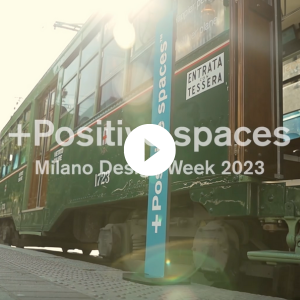
The book of interviews “From Workplace to Worksphere” (published by Franco Angeli) edited by Il Prisma, with the support of HRC, generated a significant “Vocabulary of the office of the future” which summarizes the 15 passwords of the next office post Covid with references to the interviews released by the HR directors of 13 of the most important companies (The Adecco Group Italy, Unilever, Enel Group, Bosch, Sorgenia, Aon Italia, Mazars, Pirelli, Euler Hermes, Mars, GE Healthcare, Coca-Cola HBC Italia , Sanofi) which are collected in the book.
You can download e-book Italian version here.
# 1 Capillarity
Widespread diffusion of the most innovative digital technologies and skills, enabling a new way of working, based not only on the virtualization of work processes, where possible, but above all on new forms of collaboration and co-creation – synchronous and asynchronous – within working groups.
From the interview with Donatella de Vita, Head of Learning and Welfare and Idano Di Ciocco, Head of Talent and Organization, Pirelli
# 2 Co-Creation
The office will become the space dedicated to co-creation, the mindset will change: we will go there to do co-creation, design, celebration, team work, while we will do individual work from home.
From the interview with Cristiana Milanesi, P&O Director Mars South Europe and Global Sales Business Partner, Mars
# 3 Continuing Education
With the entry into the new millennium, continuous learning returns to play a role focused on organizational thinking, as an enabler of adaptability and employability, that is, greater achievement in the workplace.
From chapter 5 “The greatest adventure. You. The experience at Phyd Hub in via Tortona, Milan”
# 4 Smart Working Etiquette
An etiquette to support the well-being of employees so that they can organize their times to avoid burnout.
From the interview with Emiliano Maria Cappuccitti, HR Director, Coca-Cola HBC Italia
# 5 Hubquarters
The office of the future as a “hubquarters”, a set of places where you will have the freedom to choose when to go, where there will be “relational agora” to support relationships between colleagues, where projects will be presented and shared and will come assistance given for troubleshooting.
From the interview with Guido Stratta, People & Organization Director, Enel Group
# 6 Hybrid work
The challenge for the future will be to find a way to collaborate asynchronously, on shared projects, guaranteeing full harmony between those who work in presence and those who work remotely.
From the interview with Alberto Bigi, Chief Innovation & Development Officer, Sorgenia
# 7 Freedom of Time
It will be necessary to make the time in which to produce flexible: it must become 24/7, but respecting health and lifestyle choices. We need organizational forms in which free individual activity is recognized and in which the person can choose to work when he wants.
From the interview with Giancarlo Baglioni, Chief Operating Officer, Aon
# 8 A place for relationships and socializing
In the office you will go to be with others and work with colleagues.
From the interview with Laura Bruno, HR Head, Sanofi Italy
# 9 Fewer desks
More space for socialization areas, for team work, collaboration.
From the interview with Giancarlo Baglioni, Chief Operating Officer, Aon
# 10 Horizontal Model
The new working model will involve an ever greater horizontality, understood as a new relational dimension between leaders, employees and collaborators, regardless of the hierarchical pyramid. An increasingly fluid model that will also significantly affect the evolution of physical spaces.
From the interview with Alessandro Panza, HR Director South Europe, GE Healthcare
# 11 Phygital
The boundary between physical and digital is increasingly bland, with digital now firmly “grafted” into the physicality of objects (AI and AR are the most common examples). This leads to an increasingly “hybrid” interaction in the workplace between collaborators in presence and remotely. The new workplace experience embraces these innovations and designs so that hybridization occurs naturally.
From chapter 3 “Office as a lever for engagement and employer branding”
# 12 Sense of Belonging
The presence in the office will be essential because it favors the connection with the corporate culture and physical contact between people. Sharing a common space strengthens the sense of identity. It is also important to develop social relations between people, which can be achieved through meeting and collaboration in presence.
From the interview with Marco Antonelli, HR Director, MMEA Region, Euler Hermes, Allianz Group
# 13 Work from Anywhere
Not 100% smart working, but the ability to find ad hoc formulas.
From the interview with Roberto Zecchino, Vice President HR and Organization, Bosch South Europe
# 14 Work Life Balance
In terms of Human Resources, it will be essential to guarantee the concept of work-life balance to prevent the risk of burnout also through a balance between remote and office work. The element that has been missing in recent months is the so-called human touch and it has been shown that the working context allows the construction of an important relational and social capital.
From the interview with Monica Magri, Group HR and Organization Director, The Adecco Group Italy
# 15 Worksumer
Companies will have to encourage people to go to the office spaces and conceive the workers as “worksumer”, giving them the right reasons to come to the company.
From the interview with Alberto Ascoli, Chief People Officer, Mazars
Text by Il Prisma

